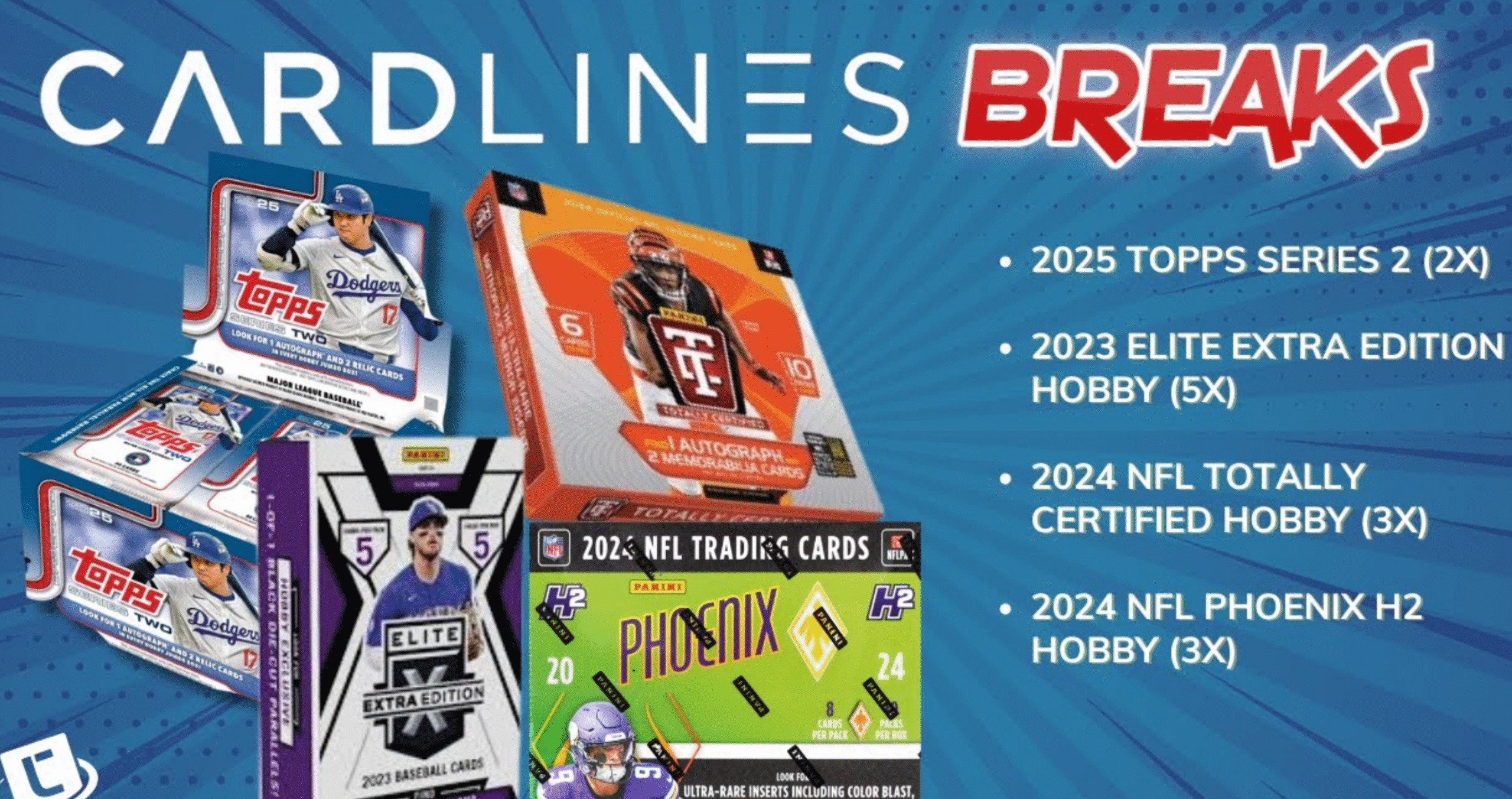

The wheels of the law turn slowly. The case of Alt vs. BGS was first filed in December 2022. The lawsuit revolves around a Steph Curry card that Alt says was trimmed but was graded by Beckett nonetheless.
The case was opened back in December 2022. The case seemed relatively simple at the time. BGS had guaranteed that the card was gradable and, therefore, not trimmed. As such, it would appear they had a liability for damages incurred by Alt, a sports card marketplace.
However, BGS has argued that its terms of service protect it from responsibility. They also note that since Alt did not exist when the card in question was graded in 2016, they can not be held liable.
The case has now developed into a fascinating battle over grader liability for their own alleged mistakes. Our full breakdown of The Alt vs. BGS lawsuit covers all the elements.
In March 2024, we finally reached the motions filing deadline. We have received some very vivid updates that shed new light on this case.
In particular, GS now alleges that Keith Koenig, the individual who submitted the card to BGS, had submitted it several times to BGS, perhaps to catch them off guard and get the trimmed card approved.
BGS provided a 9.5 grade to the card in question, a 2009-10 Topps Chrome Steph Curry Gold Refractor #101. The owner of said card placed it on the Goldin Auctions platform in October 2020.
Due to the high grade the card had received, Alt bought the card for the tidy sum of $168,000. So far, so good. Alt believed the card was worth a good deal more than that, and they could make a profit a couple of years down the road.
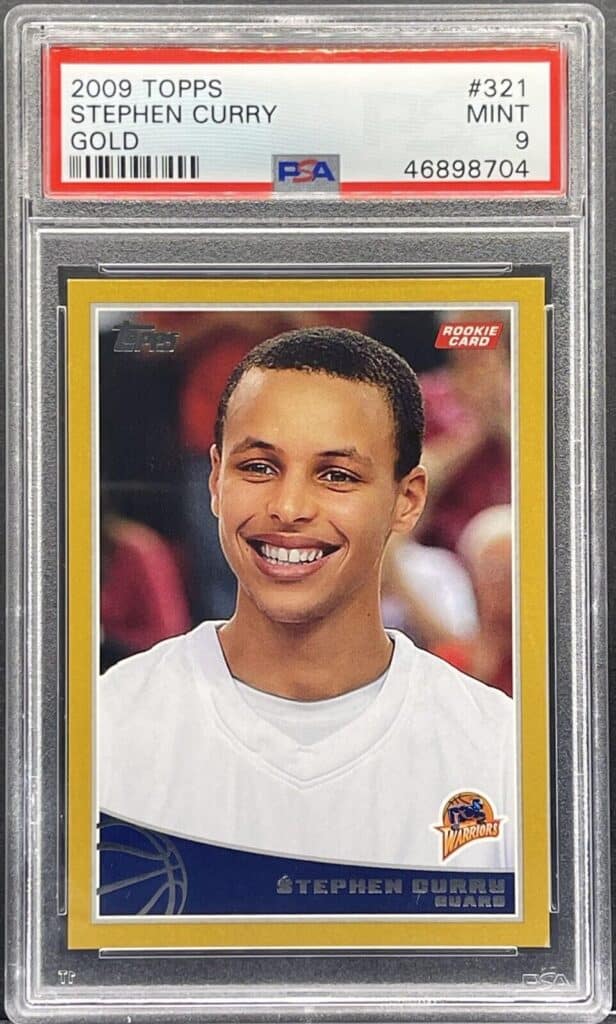
However, they then decided to break the slab and have PSA grade the card. According to the lawsuit, “PSA is the leading sports card grader and has a slightly better reputation than BGS. Given the substantial increase in the value of the Steph Curry card, Alt wanted to grade and encapsulate the card because PSA’s grading is more valued in the secondary market for sports trading cards than BGS and would increase the value of the card.”
But that is when things got real. PSA ruled that the card had been trimmed. According to the lawsuit, “On September 1, 2022, PSA determined that the Steph Curry Rookie Card was authentic/altered because it was noticeably short, or trimmed, top to bottom. PSA then returned the card to Alt.” That couldn’t have been good news.
Following that concerning development, Alt sent the card back to BGS for reassessment. According to the court documents, Beckett quickly realized that PSA was correct in their assessment: “On September 16, 2022, BGS confirmed PSA’s evaluation of the Steph Curry Rookie Card, acknowledging that the card was deemed altered by our graders.’ BGS further indicated that card “measures short [and] the top edge is inconsistent with the others [graded by BGS].”
That is all well and good. But it raises the question: if BGS could detect that the card was trimmed so quickly after the card was resubmitted, why couldn’t they reach that conclusion the first time?
In the lawsuit, they claim the way BGS presented the card was misleading. “The card was pictured in the BGS’s tamper-proof slab with a BGS label describing the card as being in 9.5 “Gem Mint” condition and effectively representing the card as unaltered (because it was not presented as “Authentic-Altered”).”
The argument continued, “Had BGS identified the Steph Curry rookie card as having been trimmed or altered; Alt would never have purchased the card, as it would have been clear to Alt that the card was worth nowhere near the $168,000 that Alt paid.”
That is all pretty solid. However, Alt was on shakier ground when it claimed that the value of this card had increased dramatically since. According to the lawsuit, “While Alt had purchased the 2009 Steph Curry rookie card for $168,000 in October 2020, if the card were in the condition that BGS had certified, it would have been worth over $350,000 by August 2022.
BGS has contested this evaluation in recent filings. They noted that the card was raw and had scratches on its surface, thus limiting its value on the market. They say that many of the sales noted by Alt in their filings are unreliable and intended to inflate significantly the value of the card.
BGS argued several things in its March 2023 reply to Alt’s complaint. They said that Alt’s complaint relied on information provided by the Beckett website. However, the site has one of those all-encompassing terms of service (TOS) agreements that say you cannot base a lawsuit on information provided there. It also comes with a disclaimer that the information therein is provided to companies and not individuals.
However, card lawyer Paul Lesko notes this is a problematic defense. As he tweeted, “Beckett’s TOS says this in the “Beckett does not guarantee access, functionality, or updated capability…”…so trying to stretch this to say this section also says “AND YOU CAN’T RELY ON OUR SHIT” is a stretch.
Second, and more troubling, BGS breaks out a scorched earth defense to say really, “IF YOU RELY ON OUR WEBSITE FOR ANYTHING, it’s AT YOUR OWN RISK, AND YOU CAN’T SUE US FOR SHIT.”
BGS also argued that because Alt didn’t exist in 2016 (when the card was graded), BGS agreements with liability does not apply to a company founded four years later.
However, BGS’s best defense is that the card was cracked out of their slab. Once it is out, technically, the card could have been trimmed. Therefore, BGS claims that it is not responsible for what happened to the card at any point after that.
This is a good point, though there is evidence that the card was trimmed earlier. We will get to that below.
There can be a temptation by some to trim valuable cards with visible flaws. A slight imperfection on the edges of a card can bring a grade down from a PSA 10 to a PSA 9. Cutting a rough card into shape and even out the other sides is not all that challenging. Indeed, that seems to be what happened in the case of this particular Steph Curry card.
The complaint explained what trimming is and why it is problematic: “Bad actors use razor blades, stock sheet cutters, or other devices to ‘trim’ sports trading cards to make their edges appear to be straighter, to ‘fix’ uncentered images, or to remove natural edge chipping in an attempt to improve the final grade.”
While a trimmed card may appear worth more than other non-trimmed cards (if its condition is better), the value immediately plummets if the trimming is discovered.
Alt claims that “trimming never increases the actual value of high-end sports cards. Card trimming is fraud and a scourge to the card trading industry because ‘trimming’ cards only creates the superficial and misleading appearance that the card is more valuable.”
It is worth remembering that Alt did not grade the card with BGS; a third party did so. Therefore, the question is whether the law allows Alt to seek compensation for shoddy service provided to someone else.
According to the motion they submitted, “although Alt was not a party to the transaction…Texas law permits Alt to recover for BGS’s negligent misrepresentation of the material characteristics of the Card.”
Is that enough to make Alt an injured party? There is a good case for that. According to the court documents, the sellers claim that “BGS’s purpose in certifying the Steph Curry rookie card as authentic and unaltered and in grading the card as being a 9.5 “Gem Mint” condition was for third parties, like Alt, to be able to rely on those representations, including in later purchasing the Card.”
The complaint finishes with a stab at Beckett’s professional capabilities: “BGS failed to exercise reasonable care or competence when it first evaluated the Steph Curry rookie card in October 2016 because Beckett holds BGS out as an expert capable of determining that the card had been ‘trimmed,’ but BGS had failed to do so concerning the Card.”
This case is worse for BGS because they have a lot of experience grading cards like this. At the time, the company was far more popular than today and was often the first choice for modern basketball cards. Therefore, it had graded 13 of the same card. Thus, Beckett should have had a frame of reference for these cards.
The case seems pretty airtight at first glance. At first, it appeared that there was one loophole here from BGS’s perspective. What if the card had been tampered with after they initially graded it? There were two years of an interim between when BGS initially graded the card and when it was sent to PSA.
Could the card have been trimmed after it was broken out of a BGS slab? They addressed this issue in their most recent filings: “There are significant issues as to whether the Curry card was trimmed prior to the Beckett’s 2016 grading. The plaintiffs have not produced evidence that Mr. Koenig trimmed the Curry card before 2016. Neither party has evidence of what happened after it was cracked out of its slab and resubmitted to Beckett in 2022.”
They raised the possibility that the card was trimmed when it was out of the case. They also say the card may have been damaged when broken out of the case. Though footage of the breaking was produced, the filing did not include “video of Plaintiffs the top edge of the protective sleeve (the same edge allegedly trimmed), the most delicate part of the process, which could result in accidental trimming.”
I have to say, as someone who has broken a few slabs in my day, the kind of damage you would incur from that process going wrong would be very messy. It would not result in a symmetrical card trim but probably in apparent damage.
However, soon, it became clear that there was more to this case. Several years passed between the original filing of the case and the deadline for motions to be filed. Indeed, Alt was only founded in 2020, and the card was graded in 2016. Therefore, BGS has claimed that they are not responsible for the company and the money it paid for the card. But that did not seem like the most robust case.
On March 12th, before the deadline to file motions on the case passed, both companies filed relevant paperwork. The most interesting bit of information pertained to the individual who had the card graded with BGS in the first place. According to the new filings, the card was submitted to Beckett several times.
Technically, there is no way to know that it was the same card. As we will discuss, BGS did not keep track of the serial numbers on the cards. The Curry refractor in question is not a 1/1 card. But Alt notes that it is doubtful to have been a different card for the following reasons:
Here are the relevant quotes from the Alt filing: “On August 12, 2016, Keith Koenig submitted a 2009-10 Topps Chrome Refractor Gold Steph Curry Card to Beckett…Beckett evaluated that this 2009-10 Topps Chrome Refractor Gold Steph Curry Card was ‘trimmed.’ Beckett then sent back this card to Mr. Koenig by FedEx Ground no later than August 26, 2016.”
Did it end there? Absolutely not. According to the filing, he sent in the card again in September, and by the end of the month, BGS had again determined that it was trimmed and sent the Curry rookie card back.
In early October, Koenig sent the card to BGS yet again. This time, they did not label the card as trimmed. Instead, they gave it a 9.5 grade, equivalent to a PSA 10 for that company.
Unfortunately for Alt (and, most likely, for BGS as well), Beckett did not keep track of the serial numbers involved. Therefore, it did not notice that it was grading the same card over and over again, although you would think that is the kind of thing a company would see.
That was the juicy information in the motion. However, its purpose was to eliminate the evidence given by one of the expert witnesses provided by BGS. Who was that witness? Someone very objective.
The CEO of the company, Kevin Isaacson. Beckett presented the CEO as a “non-retained expert witness.” However, he did not provide an expert report. Instead, this individual proclaimed that the “plaintiff’s conclusion that Beckett negligently graded the Steph Curry card in 2016 is not supported by any evidence.”
Alt claimed, with some justification, that Isaacson had limited expertise to talk about this case. Their filing noted that since he took over the company in 2023, he has “no personal knowledge of the key facts and events.”
They also wrote that because he had not filed an expert report and had only looked at filings related to the case, the “scope of his testimony should be limited to his personal knowledge.”
Looking at Isaacson’s testimony, I noticed two things that are not all that beneficial to the case BGS is making. First, he noted that at least two pieces of information on the card indicated that the Curry card had been trimmed.
Second, when asked if the multiple submissions made by Mr. Koenig to BGS were of the same card, he admitted that “the sequential number is not available; I would have no way of knowing.”
But no worries. Alt also tried to bring its own employees as experts. Apparently, there is very little budget for outside experts nowadays! BGS dissed this employee when he offered an assessment of the value of the card, noting that he has “no personal experience, knowledge, or skills that qualify him to offer an opinion on the value of the Curry Card” because Alt is an “automated system that requires little human analysis.”
There has been one case involving trimming before. In this incident, an individual who had bought a Rickey Henderson rookie card sued PSA, Probstein, and PWCC. He believed the card purchased had been trimmed.
Does that sound flimsy? Well, yes, it was. The complaint stated that “in 2019, the plaintiff purchased a 1980 Topps Rickey Henderson Rookie Card from PSA that was graded as a PSA 8. Plaintiff has compared this card to other 1980 cards and believes that the card was trimmed and therefore should not have been graded by PSA or sold by PWCC as an authentic and unaltered card.”
Another difference is the sums involved. Yes, you read correctly. We are talking about a PSA 8 Ricky Henderson rookie card, so it’s not a big bucks card. According to the complaint, “plaintiff paid $89 for this card. He would not have paid that amount for the card if he was aware that PSA graded altered cards as described herein.”
This was not a particularly strong case. However, it was not thrown out of court, and the judge was willing to listen to the claims. Even more stunningly, it seems like the case was between the parties. The exact terms are confidential but almost certainly involve the payment of compensation to the plaintiff.
This is all a very good sign for Alt. Their case is far more robust than this one. Even with the very fair doubts that BGS has raised, it seems far better sourced than this lawsuit, which was settled out of court.
Trading card legal expert Paul Lesko summarizes the case: “It shows that when you have high-dollar-value cards and people/companies rely on those grades, and the cards turn out to be altered, lawsuits will happen.”
There is certainly concern that trimming is a very significant problem in the hobby. Indeed, some believe it is a legitimate practice and are trying to normalize it. For example, former football player Evan Mathis posted a video of himself trimming cards.
The ability of the grading companies to spot and identify trimming is our primary defense against trimming. If they can’t spot it, we are pretty helpless to prove it. The grading companies have become the de facto arbiters of what is an acceptable card and what is not.
Therefore, the manner in which this allegedly trimmed card may have slipped through the cracks is a matter of great concern for all of us.
The other important issue at hand here is the responsibility of the grading companies for their determinations.
BGS has a few arguments that they are making in their defense. However, perhaps the most important thing is that they are not responsible for the information they provide. Considering that the authentication of cards and the determination that they are not trimmed and altered is what we are paying for when grading a card, this is a problematic claim for hobby enthusiasts.
As we have seen in this case, that determination can lead to business decisions costing a good amount of money. Therefore, the decisions made in this case are critical. How much protection will the law provide for collectors against trimming and other card doctoring and manipulation forms?
In addition, the ruling in the case will determine how much responsibility graders have for their mistakes. Are grading companies liable for the damage their mistakes cause to customers? The ultimate ruling in Alt vs. BGS is essential in determining the answer to this question.
what was Panini doing? 🙄
I compared sports card prices from the big sellers to save YOU money
Is GameStop buying PSA? (the truth!)
I ripped an entire case of Phoenix Football (BIG win or MASSIVE loss?)
Make an extra 30% PROFIT on eBay with this sports card hack
What's your biggest trading card regret? This is a safe space. 🤣
I used ChatGPT to invest in sports cards (and make this thumbnail lol)
Easy hack for buying Tyrese Haliburton rookies at a DISCOUNT.
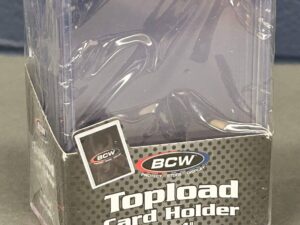
BCW Thick Card Toploaders 197 Pt. 10 per pack
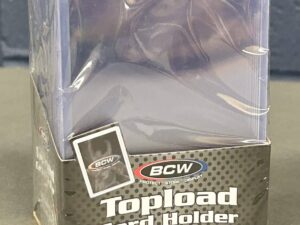
BCW Thick Card 59 Pt. Toploaders. 25 per pack
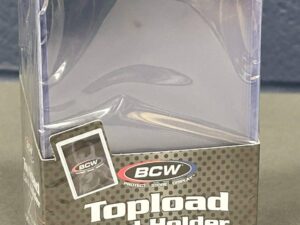
BCW 20 Pt. Toploaders. 25 per pack
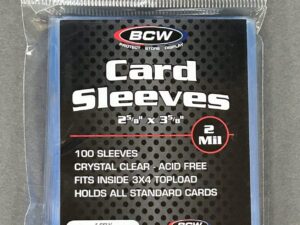
BCW Standard Card Sleeves. 100 per pack
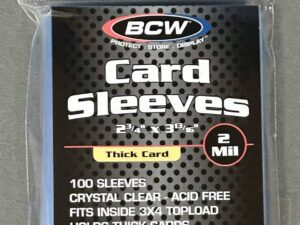
BCW Thick Card Sleeves. 100 per pack
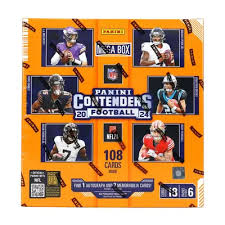
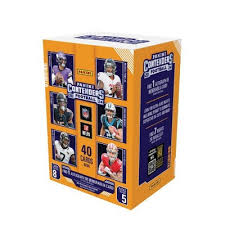
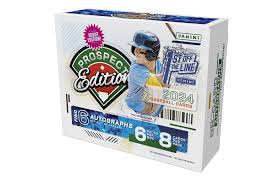
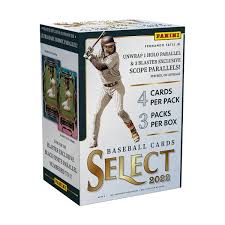
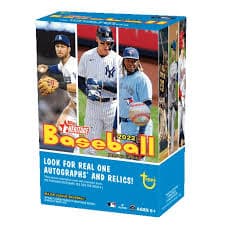
2022 Topps Heritage Baseball Blaster Box Configuration: 7 Packs per Box – 9 Cards per Box. Plus 1 extra pack.
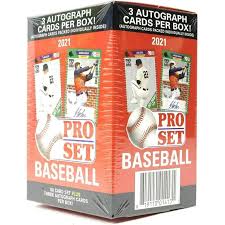
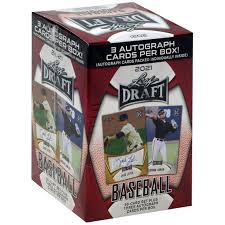
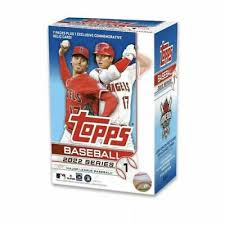
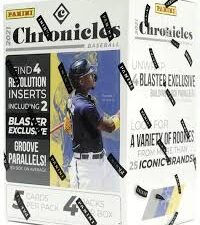
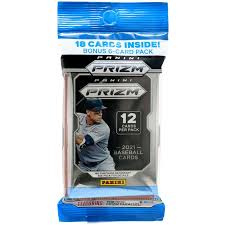
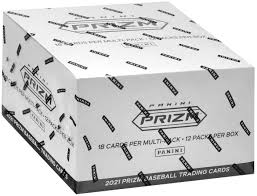

© Copyright 2025 - All rights reserved Cardlines.com / Media Techs LLC - Sports Card News, Reviews, Releases and BREAKS - #thehobby.
Important: When you click on links to various merchants on this site and make a purchase, this can result in this site earning a commission. Affiliate programs and affiliations include, but are not limited to, the eBay Partner Network.
The SAD story of Collectable. What went wrong? (The Downfall Fractional Sports Card Investing)
Cardlines June 18, 2025 3:00 pm